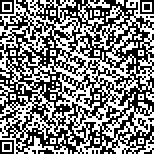| 摘要: |
| 杜氏枪鱿(Uroteuthis duvaucelii)为西太平洋海域广布种,形态特征易受地理阻隔和生态环境等因素影响。采用形态学观察和多元统计分析方法(包括主成分分析、判别分析、聚类分析和单因素方差分析),对采自南通、宁波、南麂岛、东山、汕头、阳江和泰国湾的杜氏枪鱿7个自然群体共202个样品的形态差异进行了比较分析。结果显示:雌、雄群体主成分分析都得到5个主成分,累积贡献率分别为63.395%和67.591%,主成分1和主成分2的散点图均显示各群体存在重叠;雌雄群体的综合判别准确率分别是58.7%和57.3%;雌、雄群体的聚类分析结果基本一致,将7群体分成两支:泰国湾群体与南通、阳江群体聚为一支,宁波、南麂岛、东山和汕头群体聚为一支;所有群体形态测量指标的单因素方差分析结果无显著差异。泰国湾雄性第三腕大吸盘角质环齿数只有7个,与其他群体(11~15个)差异极显著,雌性个体角质环无显著差异。此外,扫描电镜结果显示泰国湾和阳江样品的齿舌形态和大小具显著差异。研究结果为杜氏枪鱿种质资源保护、合理利用与科学管理提供基础资料。 |
| 关键词: 杜氏枪鱿 西太平洋 多元分析 自然群体 形态差异 |
| DOI:10.11693/hyhz20211000241 |
| 分类号: |
| 基金项目:国家自然科学基金项目,32170536号。 |
附件 |
|
| MORPHOLOGICAL VARIATION ANALYSIS OF UROTEUTHIS DUVAUCELII IN THE COASTAL WATERS OF WESTERN PACIFIC |
|
LYU Yu-Han1,2, ZHANG Chi2, DAI Liao-Yi3, HE Wei-Tong1,2, ZHENG Xiao-Dong1,2
|
|
1.Institute of Evolution and Marine Biodiversity, Ocean University of China, Qingdao 266003, China;2.Key Laboratory of Mariculture, Ministry of Education, Ocean University of China, Qingdao 266003, China;3.Agricultural and Rural Bureau of Yangjiang of Guangdong Province, Yangjiang 529500, China
|
| Abstract: |
| Uroteuthis duvaucelii is a widely distributed species in the western Pacific Ocean, and its morphological characteristics are easily affected by geographical barriers and ecological environment. The total 202 U. duvaucelii individuals collected from seven populations distributed in the Nantong (NT), Ningbo (NB), Nanji Island (NJD), Dongshan (DS), Shantou (ST), Yangjiang (YJ) and the Gulf of Thailand (GT) were studied by morphological observation and multivariate statistical analysis (principal components analysis, discriminant analysis, cluster analysis, and one-way ANOVA). Results showed that five principal components both in female and male populations were recognized with a cumulative contribution rate of 63.395% and 67.591%, respectively. Scatter plots for both principal components 1 and principal component 2 show overlap among all populations. The comprehensive discrimination accuracy of the female and male populations were 58.7% and 57.3%, respectively. Male and female populations were largely consistent and the seven populations could be divided into two main clusters by cluster analysis. Cluster 1 was composed of the GT, YJ and NT populations, and Cluster 2 was composed of NB, NJD, ST and DS populations. The results of One-way ANOVA for all population morphometric indicators were not significant different. The number of sucker ring teeth of the third arm differed significantly between the male population in GT (7 teeth) and other populations (11~15 teeth). In addition, the shape and size of radula of the GT and YJ populations were also significantly different in scanning electron microscopy. The present study provides basic morphological data of U. duvaucelii for analyzing population morphological diversity and protecting germplasm resources in a scientific manner. |
| Key words: Uroteuthis duvaucelii the western Pacific multi-variate analysis natural population morphological variation |
